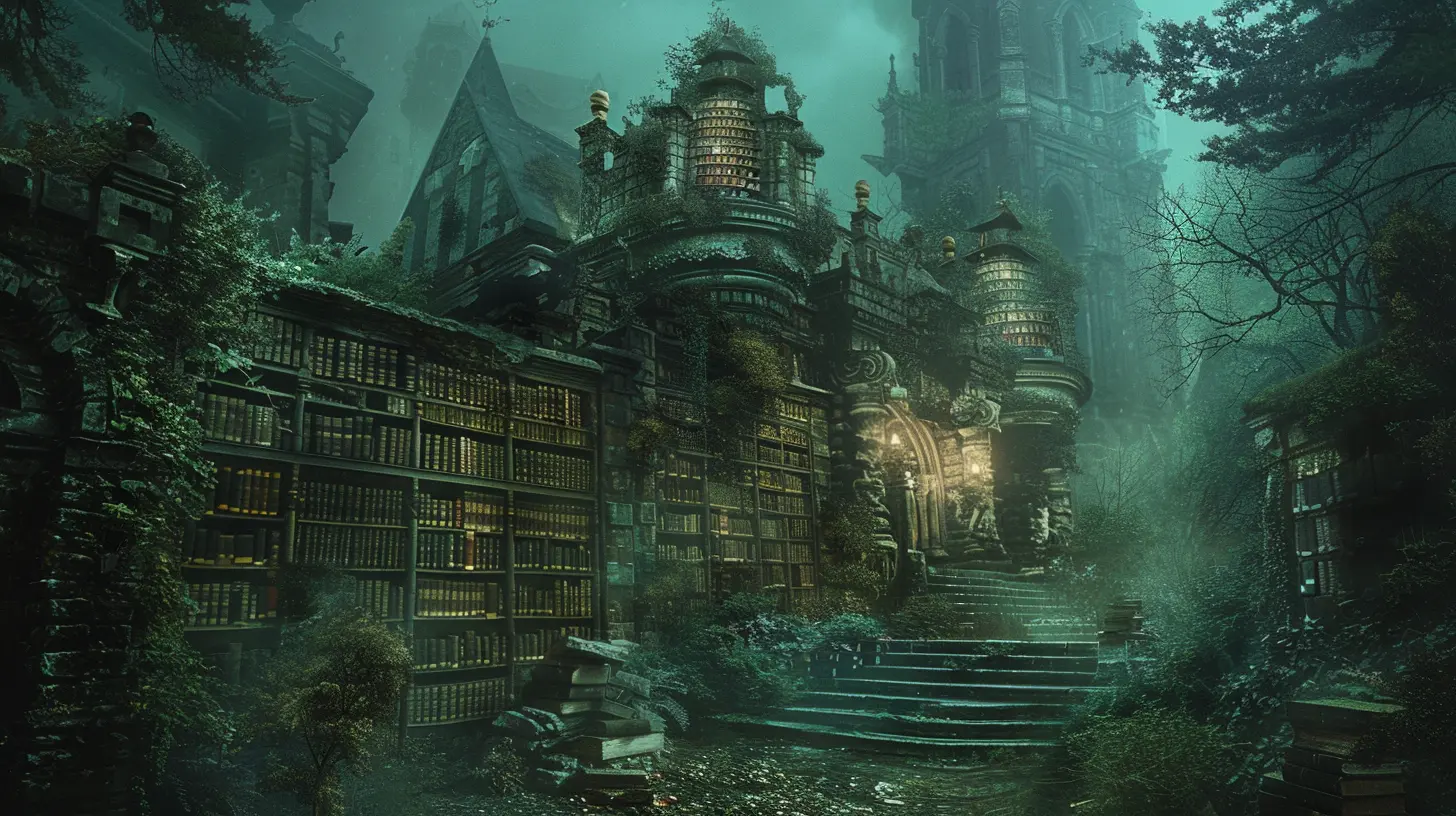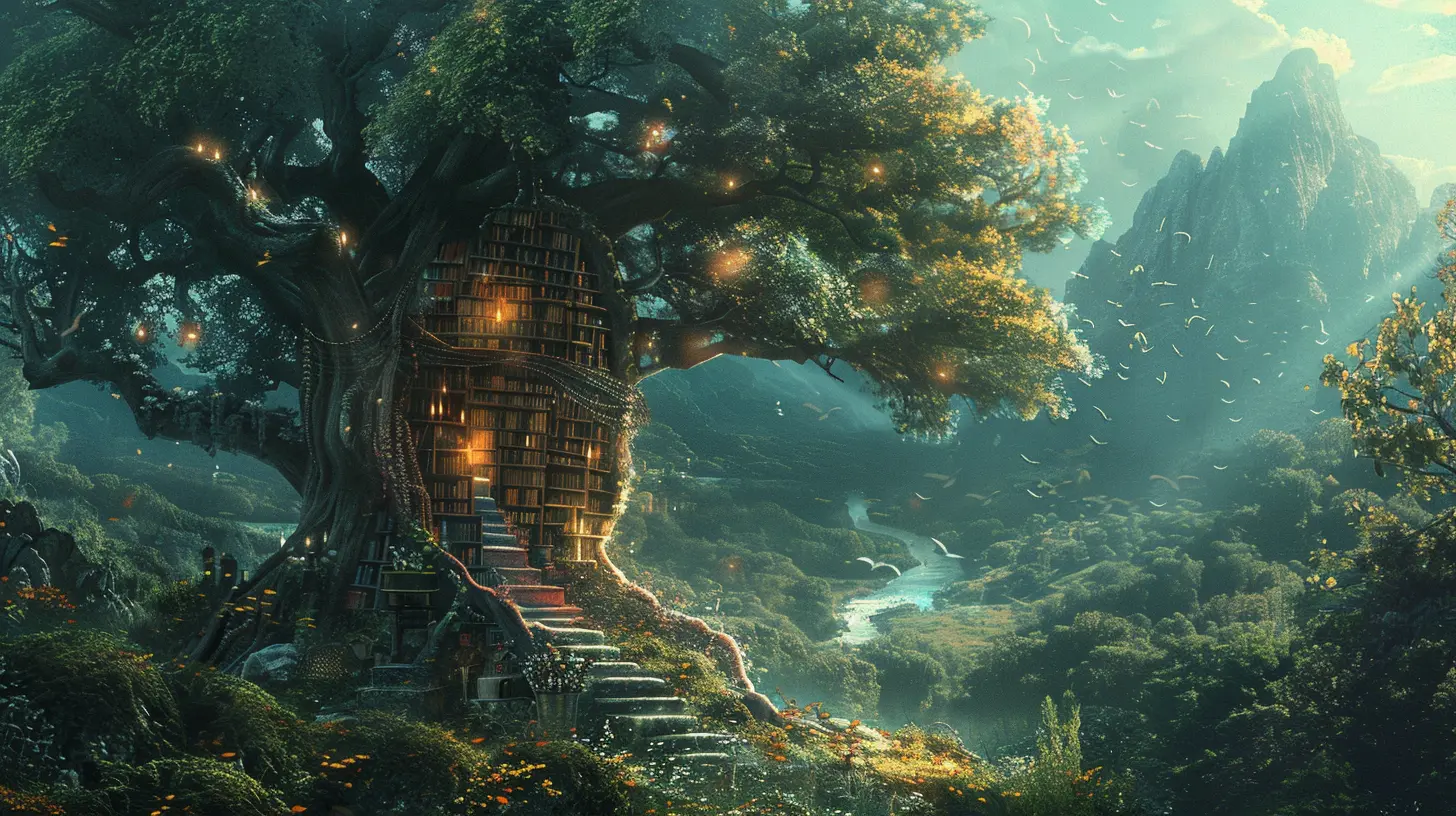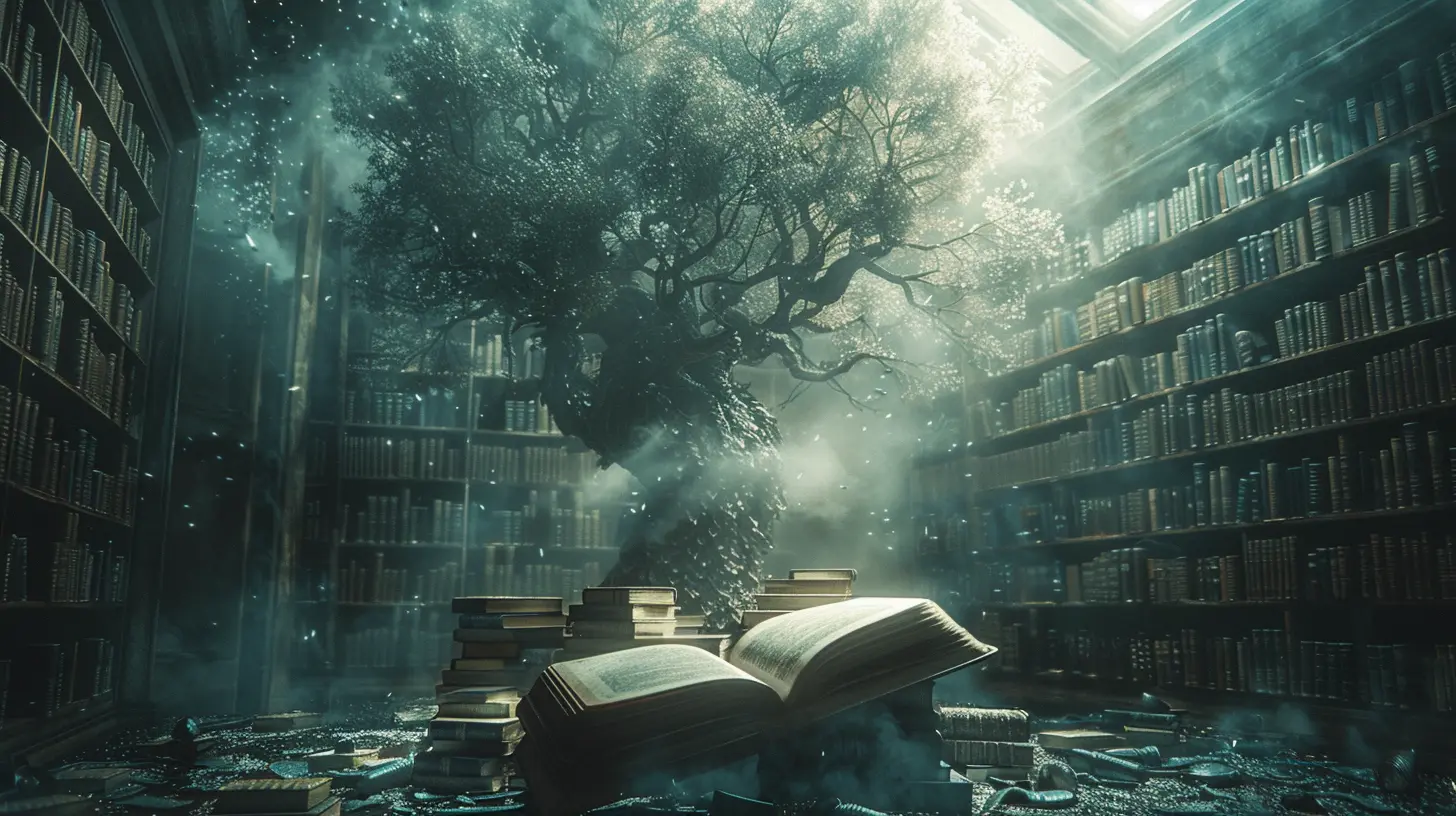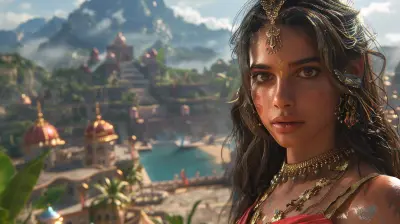The Influence of Literature on Game Narratives
16 August 2025
Let’s be honest—video games have come a long way since the days of pixelated plumbers and mysterious yellow circles gobbling up dots. Today, some game narratives are so rich, so compelling, you’d think they were straight out of a bestselling novel. And you wouldn’t be wrong. Literature hasn’t just knocked politely on gaming’s door—it’s flung it wide open, marched in, and rearranged all the furniture.
So grab your favorite beverage (coffee, ale, mana potion—we don’t judge) and let’s get into how the timeless world of literature has been quietly (and sometimes loudly) shaping the way our favorite video games tell stories.
Once Upon a Loading Screen: Storytelling Levels Up
Story has always been a big deal. From campfires to Kindles, we've loved spinning tales. But when video games first hit the scene, storytelling was about as deep as a kiddie pool. "Save the princess." "Collect the coins." "Avoid the barrels." Riveting stuff, right?Fast forward a few decades and games are now giving novels and movies a run for their money when it comes to narrative depth. And a big reason for that? Good old literature.
Many game developers are massive bookworms. They grew up devouring Tolkien, Orwell, Lovecraft, and Austen. (Okay, maybe not Austen, but never say never.) Naturally, those literary roots eventually found their way into the games we play.
Plot Twists Brought to You by Shakespeare
Ever played a game and felt like you were stuck in a tragic play? That’s not by accident. Shakespeare's influence alone could fill a dungeon’s worth of scrolls.Take The Elder Scrolls series. The political intrigue, betrayals, backstabbing families—it’s like Macbeth with dragon shouts.
Or what about Final Fantasy Tactics? That game is basically a Shakespearean tragedy with job classes and epic boss themes.
Even Red Dead Redemption 2 pulls vibes from Shakespeare’s obsession with flawed heroes and moral dilemmas. You don’t need to be a literary major to see the parallels.
World-Building 101: Courtesy of Fantasy and Sci-Fi
Tolkien practically invented the fantasy genre. Elves, dwarves, dark lords—he basically copyrighted medieval mythos. And guess what? Game devs noticed.Ever journeyed through Skyrim or lost countless hours in The Witcher 3? Thank Tolkien for laying the groundwork. The expansive lore, the made-up languages, the side quests that are somehow more interesting than the main plot—all echo fantasy literature at its best.
Sci-fi lovers aren’t left out, either. The narrative structure of Mass Effect, with its galaxy-spanning politics and moral quandaries, owes a lot to the likes of Asimov and Arthur C. Clarke.
So yes, literature taught games how to not just tell a story but how to build entire universes where players could get lost, found, and maybe even moral-questioned.
Characters With Actual Depth (And Tragic Backstories)
Remember when a character's entire personality revolved around having a sword and a snarky one-liner? Not anymore.Literature taught game writers that characters could—and should—be complex. Think of Geralt from The Witcher (yes, it’s based on a book series first). He’s not just a monster slayer. He’s a philosopher, a father figure, a reluctant hero who makes mistakes and feels things.
Or Arthur Morgan from Red Dead Redemption 2. He’s basically a walking Russian novel—a man torn between his past and what he wants to become.
Games today flaunt character arcs so emotional they’d make Hemingway weep into his whiskey.
Themes That Hit You Right in the Feels
Games aren’t just about blowing things up (though, let’s be honest, that’s still fun). Thanks to literary inspiration, they now dive into themes like war, love, identity, existential dread, and the classic “what even is real?”Take Bioshock Infinite, which gets philosophical real fast with its multiverse theory and musings on freedom. It’s not all plasmids and skyhooks—there's some deep commentary under those floating cities.
Or Spec Ops: The Line, which flips your typical shooter narrative on its head and asks, "Are you really the hero here?" It borrows heavily from Joseph Conrad’s Heart of Darkness, and it hits hard.
These themes aren’t just storytelling fluff—they challenge how you see the world. That’s literature’s voice echoing through your controller.
Morality Systems: Choose Your Own Literary Adventure
Games like Mass Effect, The Witcher, and Detroit: Become Human have one thing in common—they let you make choices that matter.This isn't a new idea. Literature has long toyed with subjectivity and moral gray areas. Books like Crime and Punishment or Frankenstein play with the idea that people are rarely fully good or evil.
Games took that concept and ran with it—right into a branching dialogue tree. Now we can choose who lives, who dies, and who gets to cry later. Storytelling isn’t passive anymore—it’s interactive. And that idea was first planted on papyrus centuries ago.
Literary Tropes Get a Pixelated Makeover
Remember the hero's journey? The chosen one? The reluctant savior? Yeah, those didn’t spawn in a game studio. Those are story archways pulled directly from literature.Joseph Campbell’s "The Hero with a Thousand Faces" has been the blueprint for countless stories, from Luke Skywalker to Link.
And let’s not ignore the more niche tropes: gothic horror (hello, Bloodborne), unreliable narrators (The Stanley Parable, anyone?), and even epistolary narratives (those juicy in-game journals and emails we can’t resist reading).
Games are remixing these literary devices into new, immersive formats. It’s like watching an old-school play but you get to throw fireballs.
From Page to Play: Book-to-Game Adaptations
Sometimes the influence is super direct—like straight-off-the-bookshelf direct. We’re talking adaptations, baby.- The Witcher series: Based on the novels by Andrzej Sapkowski. Hit games. Hit Netflix show. Hit everything.
- Metro 2033: Russian post-apocalyptic bleakness at its finest, straight from Dmitry Glukhovsky’s mind.
- Call of Cthulhu: Lovecraft’s madness, reimagined pixel by horrifying pixel.
- Discworld: Terry Pratchett’s satire and wit immortalized in point-and-click charm.
These games don’t just borrow plots—they breathe new life into existing literary worlds, giving fans a chance to not just read about adventures… but live them.
The Flip Side: When Games Inspire Literature
Now this is where the plot thickens—like gravy on Thanksgiving.Games have become so narrative-rich that the tables have turned. We now have books based on games (Halo, Assassin's Creed, Dragon Age) that expand lore, backstories, and sometimes even retcon stuff the games couldn’t touch.
The cycle of inspiration is a beautiful nerdy ouroboros. Literature inspires games. Games inspire literature. And we, the players/readers, feast.
Why This Matters: Storytelling Is Evolving
So, why should you care that your favorite game took cues from Dostoevsky or Tolkien?Because it means games aren’t just games anymore.
They’re meaningful. Emotional. Provocative. They make us question our choices, feel empathy, explore worlds unknown, and sometimes just sit there, headset in hand, processing what just happened.
Literature gave us the tools. Games figured out how to let us use them with a joystick.
TL;DR: Books Walked So Games Could Run
To sum it all up (before your thumb gets sore from scrolling): The stories we love in gaming today? They didn’t appear out of thin code. They were shaped in the libraries, in the dusty tomes, in the pages of masterpieces old and new.From world-building to moral quandaries, from character development to classic tropes—literature has been the trusty co-op partner in gaming’s narrative evolution.
So next time you’re tearing up during the end credits or quoting a monologue from your favorite RPG, give a silent nod to the authors who made it all possible. Or, you know, go full bard and write an ode about it. Your call.
all images in this post were generated using AI tools
Category:
Game StorylinesAuthor:

Tayla Warner
Discussion
rate this article
2 comments
Reagan Reilly
Literature has profoundly shaped game narratives, providing depth and complexity. From character development to thematic exploration, literary techniques enhance storytelling within games, creating immersive experiences. As games continue to evolve, the integration of literary elements will remain essential for crafting engaging narratives that resonate with players on multiple levels.
February 1, 2026 at 4:45 PM
Vesper Gilbert
Who knew that reading classics could level up our gaming experience? From epic quests to plot twists, let’s raise a toast to authors who’ve inspired our favorite characters! Time to grab a book and hit 'start' on adventure!
August 22, 2025 at 4:06 AM

Tayla Warner
Absolutely! Literature enriches game narratives, providing depth and inspiration that enhance our gaming adventures. Cheers to the storytellers!


